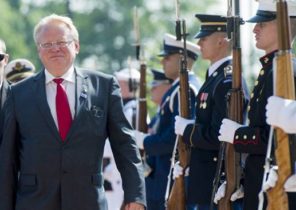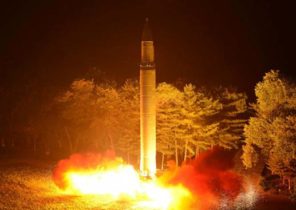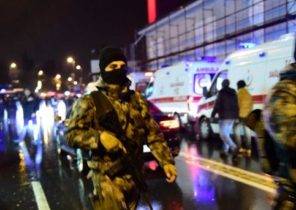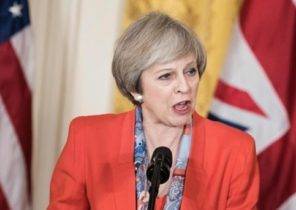Doha — Pandemic Covid-19 revealed a number of institutional weaknesses, but above all it showed that the United Nations urgently needs reform. In particular, the response of the world health organization (global UN Agency on health) on the epidemic of this virus found obvious shortcomings, which explains the lack of international consensus and cooperation, and active protectionist measures on the part of members of this organization.
Nowhere critic who was not so loud and noticeable as in the US, where the recent decision of President Donald trump to freeze U.S. funding for the organization was to her a dreadful blow, and at exactly the moment when she desperately needs support. From what the UN will do next, and how she will be able to recover after a demonstrated inability to effectively coordinate in crisis Covid-19, will depend on its role in the world after the pandemic.
I consider myself a son of the UN and a staunch supporter of its values and principles. For four decades I have played different roles in this giant bureaucratic machine, since 1974, when I was appointed the representative of Qatar to the UN Organization for education, science and culture organization (UNESCO), and ending in 2017, when I lacked one vote to become Director-General of UNESCO.
Almost all of the time, the UN was consistently given hope for a better future. Its specialized agencies and organizations played a key role in preserving world peace, the prevention of international conflicts, the elimination of colonialism, the protection of human rights.
Recently, however, the role of the UN has declined steadily, and its influence on world events and governments have weakened. Once the main mediator and arbitrator in the world, today it has become too limited to old concepts and doctrines that do not allow it to be the truly effective, full of the spirit of cooperation, global governance body, which it seemed to its founders. The UN ceased to impress upon the governments respect for international legitimacy, international law to maintain global peace and security — as it did, for example, after the Second world war and after the collapse of the Soviet Union.
Simply put, the world has changed and the UN has not kept pace with these changes. Turboskorost political, economic and cultural change in the twenty-first century has led to the fact that once powerful organization was powerless to protect her few remaining friends.
However, this decline does not mean that the UN is doomed to be in the dustbin of history. Judging by past experience, the pandemic Covid-19, which became the catastrophic failure of global policy is likely to Herald the beginning of a period of significant change in the world. I am confident that we are moving to a new, more diverse world order in which international management is no longer defined by any one country or one set of political values.
During the crisis Covid-19 international solidarity has not worked, and every country tried to promote only their own interests. When the pandemic is over, the world will be engaged in special investigations, accusations and the search for scapegoats. The UN will have to weather this storm, but in the end, I think it will help revive the willingness to appreciate what the collective community that we previously worked so hard to create.
This moment of truth will be difficult for the UN because it will have to make hard decisions. Organizations will need to abandon the old mentality and start moving in a direction that may be uncomfortable.
For example, such bodies as UNESCO, will need to clearly demonstrate its benefits to the world. Education, science and culture will be crucial for the recovery after the pandemic, so the leadership of UNESCO is obliged to ask deep questions: What are we doing to preserve cultural values? How can we protect human rights, including the right to education? How can we guide the scientific community and prevent a new pandemic? Whether it is necessary to strengthen regional diversification in order for the organization at the service of all member countries, and how this should be reflected in its leadership? Only successfully solving such problems, UNESCO and other UN agencies will be able to retain its value in the world after Covid-19.
The UN reform must start from the top level of the Security Council, where five permanent members (China, France, Russia, UK and USA) continue to enjoy the right of veto, inherited from a bygone era. The extension of permanent membership in the Security Council at the expense of other countries (from Asia, Africa, Latin America and the Middle East) will allow to balance the procedures of global decision-making.
This change is completely justified. For example, India in this decade may become the country with the largest population in the world, Japan has world’s third-largest economy, while South Africa and Nigeria the largest economy on the continent with world’s highest population growth rates.
In addition, UN agencies should ensure that the citizens of the country in which they are based are not held in their highest positions. Too often, the choice of the leadership of the organization casts doubt on its legitimacy and independence. Just look at my region (middle East) to see the dangerous consequences of such decisions.
For example, the Cairo-based Arab League was once considered a platform for Arab cooperation, but the constant appointments of the Ministers of the government of Egypt as Secretary General of the organization became the signal of her death. Trying to make the League an offshoot of the Egyptian state, the leadership of this country has made, that this organization has become politically obsolete, and its role has been reduced to a platform for empty discussions.
Pandemic Covid-19 should serve as a start for reforms of the UN. If this does not happen, then I’m afraid that the organization to which I have devoted a significant part of his professional career and the principles which I highly appreciate, can not find for themselves a secure place in the modern world, not to mention the restoration of the former glory.
Hamad bin Abdul Aziz al-Kawari — Minister of state of Qatar in the rank of Deputy Prime Minister, the President of the National library of Qatar, and former Ambassador of Qatar to the United Nations.







